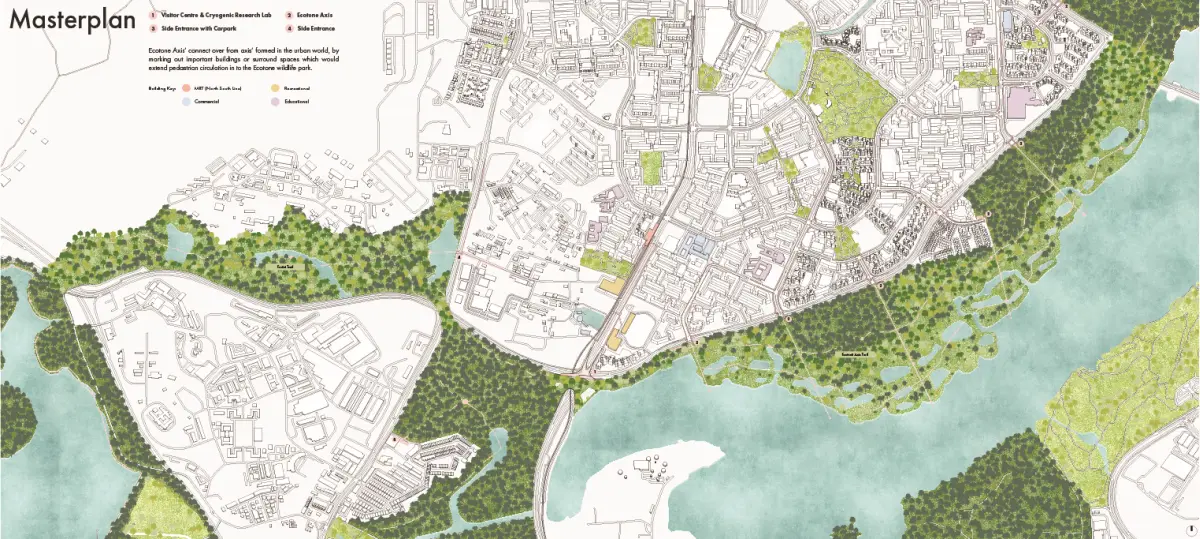
Ecotone
BY Jaslynn Ho Tze Tsing
SUPERVISED BY Assoc. Prof. Nirmal Tulsidas Kishnani (Dr.)
STUDIO THEME FORM FOLLOWS SYSTEM
Abstract
Earth is facing its sixth extinction of species. For this to cease, humans need to [a] reduce consumption of resources that deplete natural systems [b] regenerate habitats and reconnect fragmented biodiversity hotspots [c] preserve genetic material of species at risk, and [d] foster activism on nature conservation. Cities are a key part of this solution. They must be designed with biodiversity in mind, since urban growth is largely responsible for the unprecedented biodiversity loss of 68 percent in less than half a century .
In Singapore, several strategies are in place to create a nature-centric city, one that permits a symbiotic relationship between nature and human-made . However, an analysis of Singapore’s nature conservation plan shows insufficient consideration. For instance, nature is not prioritised over human needs and, as a result, ecosystems are fragmented and isolated. Green spaces in Singapore focus on anthropocentric needs, such as leisure or the reduction of Urban Heat Index (UHI).
Within Singapore’s cityscape, there are two distinct categories. The first is human-centric, i.e. built elements that satisfy housing, roads, etc. The second is nature-centric, i.e. nature reserves, wetlands, mangroves, etc. which are preserved for biodiversity. This thesis proposes a third space that creates room for both. Based on the concept of an Ecotone, this will be a transitional space between two adjacent ecological systems , between the first and second space types. It will contain habitats and programmes that support both urban and ecological needs.
This proposed Ecotone, creates spaces that allow human-wildlife interactions to be possible but ensuring safety for both parties. These new forms of interactions are crucial towards forming empathy towards animals, a step crucial towards changing the future. This space will also include cryogenic labs, making it possible to revive endangered animals, returning them to their habitats.
Supervisor Comments
Species extinction is linked to urban expansion. From that simple premise, this thesis attempts to create an Ecotone within an urban setting, defined as a space where two ecological conditions overlap. It starts with a critique of land use in Singapore, specifically, golf courses. The proposal blurs the boundary between architecture and landscape, urban and natural, capturing moments when the two worlds intersect. At the regional scale, the scheme defragments ecosystems, linking two ecologically rich parts of the island with a new forest-park, repurposed from golf courses, and creating new amenities that are easily accessible by residents of nearby residential areas.
- Assoc. Prof. Nirmal Tulsidas Kishnani (Dr.)